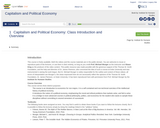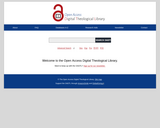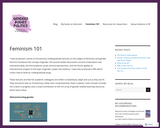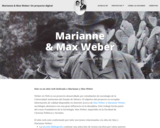
Mini-Unit Rationale:In this unit, the content to be covered will all fall under the subheading of early Muslim Civilizations. Previously the students have studied early river valley civilizations such as in the Fertile Crescent, the Indus River Valley, the Americas, the Huang River Valley and the Nile River Valley. The students will be able to use their previous knowledge of the basic constructs of a civilization to build upon the content in this chapter (10) that outlines the creation, spread and division of the Muslim political and religious empires of the Middle East. This mini-unit will lead students to the next mini-unit, which covered the spread of Islam into South and Southeast Asia through religious, cultural and political diffusion among other varying factors.This mini-unit will consist of five 45-minute lessons to be taught to a college-prep level freshman World Studies course in a private, co-educational Catholic high school classroom. There are sixteen students in the class, of varying academic abilities. Some students in the general education class have 504 accommodation plans and two have IEP’s, but they are grouped heterogeneously into this social studies course with all college-prep level students. The school is a 1 to 1 school, and all students have iPads with Ebook textbooks, internet capability, QR code readers and the whole slate of Google Apps downloaded onto their tablets. The students will all have multiple new applications downloaded onto their iPads prior to this mini-unit, and will learn how to use them during tutorial portions within this mini-unit.Overall Goal:This mini-unit is designed to help students develop as historical thinkers, critical thinkers, and digital citizens through the lens of analyzing the origins, division and spread of early Muslim civilizations.Overall Objectives:1. Students will be able to... identify the prophet of Islam, Muhammad, and explain how his teachings spread the Islamic beliefs throughout the Middle East and eventually, the world.2. Students will be able to... explain how Islam affected all aspects of religious and secular society for Muslims, and how this led to advancements and innovation in many parts of the world.3. Students will be able to... explain the divisions that emerged within Islam and the differences between their major beliefs.4. Students will be able to... explain the rise of the Umayyad and Abbasid caliphates and how those empires affected the Middle East and the surrounding lands.5. Students will be able to… read and understand detailed maps and virtual reality images of the important historical sites of Mecca and Medina, and explain their significance to the rise and spread of Islam.Overall Standards:NCSS Standards Strands:Time, Continuity and Change: Evaluate the impact of the institutions, values, and beliefs of people in the past on important historical decisions and developments, and compare different interpretations of the causes and consequences of these decisions and developments.Individuals, Groups and Institutions: Evaluate different interpretations of the influence of groups and institutions on people and events in historical and contemporary settings.Individuals, Groups and Institutions: Analyze examples of tensions between belief systems and governmental actions and policies.Power, Authority and Governance: Examine persistent issues involving the rights, responsibilities, roles, and status of individuals and groups in relation to the general welfare.Global Connections: Describe and explain conditions and motivations that contribute to conflict, cooperation, and interdependence among groups, societies, and nations.CSDE Common Core Social Studies Standards:GEO 6–7.2 Use maps, satellite images, photographs, and other representations to explain relationships between the locations of places and regions, and changes in their environmental characteristics.GEO 6–7.3 Explain how cultural patterns and economic decisions influence environments and the daily lives of people.GEO 6–7.4 Analyze the cultural and environmental characteristics that make places both similar to and different from one another.GEO 6–7.5 Explain the connections between the physical and human characteristics of a region and the identity of individuals and cultures living there.CIV 6–7.1 Explain specific roles played by citizens (such as voters, jurors, taxpayers, members of the armed forces, petitioners, protesters, and officeholders).CIV 6–7.3 Compare historical and contemporary means of changing societies and promoting the common good.HIST 6–8.1 Use questions about historically significant people or events to explain the impact on a region.INQ 9–12.5: Determine the kinds of sources that will be helpful in answering compelling and supporting questions, taking into consideration multiple points of view represented in the sources, the types of sources available, and the potential uses of the sources.Connecticut Common Core Literacy Standards:CCSS.ELA-LITERACY.W.11-12.4: Produce clear and coherent writing in which the development, organization, and style are appropriate to task, purpose, and audience.CCSS.ELA-LITERACY.W.11-12.8: Gather relevant information from multiple authoritative print and digital sources, using advanced searches effectively; assess the strengths and limitations of each source in terms of the task, purpose, and audience; integrate information into the text selectively to maintain the flow of ideas, avoiding plagiarism and overreliance on any one source and following a standard format for citation.CCSS.ELA Literacy and Reading RH.11-12.2: Determine the central ideas or information of a primary or secondary source; provide an accurate summary that makes clear the relationships among the key details and ideas.Diocese of Bridgeport Standards:Historical Thinking: Students will develop historical thinking skills, including chronological thinking and recognizing change over time; contextualizing, comprehending and analyzing historical literature; researching historical sources; understanding competing narratives and interpretation; and constructing narratives and interpretation.Diocese of Bridgeport Historical Thinking Skills:Skill 1: Trace the emergence and decline of Muslim civilizations.Skill 2: Explain how geography and history are linked.Skill 3: Describe the tenets of Islam.Skill 4: Analyze the reason for the division of Islam.Skill 5: Evaluate the role of religion in the development of the Muslim empires in the Middle East.Skill 6: Describe the major characteristics of Muslim empires.Skill 7: Describe examples of cultural diffusion from the Muslim Empires.Skill 8: Describe the characteristics and advances of the Golden Age of Islam.Local, United States and World History: Students will use historical thinking skills to develop an understanding of the major historical periods, issues and trends in United States history, world history, and Connecticut and local history.Historical Themes: Students will apply their understanding of historical periods, issues and trends to examine such historical themes as ideals, beliefs and instructions; conflict and conflict resolution; human movement and interaction; and science and technology in order to understand how the world came to be the way it is.Applying History: Students will recognize the continuing importance of historical thinking and historical knowledge in their own lives and in the world in which they live.ISTE Net Standards for Students:Empowered Learner: 1C: Students use technology to seek feedback that informs and improves their practice and to demonstrate their learning in a variety of ways.1D: Students understand the fundamental concepts of technology operations, demonstrate the ability to choose, use and troubleshoot current technologies and are able to transfer their knowledge to explore emerging technologies.Digital Citizen: 2B: Students engage in positive, safe, legal and ethical behavior when using technology, including social interactions online or when using networked devices.2C: Students demonstrate an understanding of and respect for the rights and obligations of using and sharing intellectual property.Knowledge Constructor: 3A: Students plan and employ effective research strategies to locate information and other resources for their intellectual or creative pursuits.3C: Students curate information from digital resources using a variety of tools and methods to create collections of artifacts that demonstrate meaningful connections or conclusions.Innovative Designer: 4A: Students know and use a deliberate design process for generating ideas, testing theories, creating innovative artifacts or solving authentic problems.Creative Communicator: 6B: Students create original works or responsibly repurpose or remix digital resources into new creations.6C: Students communicate complex ideas clearly and effectively by creating or using a variety of digital objects such as visualizations, models or simulations.6D: Students publish or present content that customizes the message and medium for their intended audiences.Global Collaborator: 7B: Students use collaborative technologies to work with others, including peers, experts or community members, to examine issues and problems from multiple viewpoints.7C: Students contribute constructively to project teams, assuming various roles and responsibilities to work effectively toward a common goal.7D: Students explore local and global issues and use collaborative technologies to work with others to investigate solutions.Overall Unit Assessments:Formative Assessments: Teacher will monitor student progress by circulating and assessing student on-task behavior while providing immediate feedback and redirection if necessary.Teacher will check daily student progress via student-group Google Doc sheets.Students will take various Google Forms formative assessments to gauge their individual understanding of the content knowledge, as well as reflect on their collaboration and participation in lesson activities.Answer Garden formative assessment will be posed to gauge their individual understanding of the content knowledge, as well as reflect on their collaboration and participation in lesson activities.Students will participate in interactive Kahoot Quizzes to help both teacher and student understand individual real-time comprehension levels.Summative Assessments:Students will create an original telecast in small groups of three to display their knowledge and understanding of the Umayyad and Abbasid Empires and/or the Golden Age of Muslim Civilization, and this mini-unit overall.Students will take a summative assessment at the end of Chapter 11 (after multiple mini-units are completed) in the form of a pen-to-paper Unit test.Summary of Mini-Unit:Students will begin this unit by learning about the context of the time period, and the geography of the land and cities from where the early Muslim civilizations emanated. Then, they will learn about the major tenets of Islam and a religion and Muslims as a culture and the political systems of the early empires. Next, students will analyze the origins and spread of conflict that lead to the division of Islam into the two major sects of the religion: Sunni and Shi’a. Finally, students will learn about the Umayyad and Abbasid empires and analyze their contributions to society and culture in the Middle East, as well as trace the emergence and decline of those Muslim empires.Technology Rationale:The 9th grade students will be using various technologies each day of this mini-unit, ranging from iPad applications, to QR codes, to engaging Smart-board technology. The integration of technology into this mini-unit will optimize students’ learning experience by encouraging student collaboration, providing innovative ways of communicating their own ideas, and engaging students as global citizens who demonstrate an understanding of digital citizenship and proper use of technology in an academic setting. Some of the technologies used by the teacher and students are included to streamline the transition process and create a paperless classroom environment, which will provide many benefits for the class and even transcend the classroom, such as environmental and economical.
- Subject:
- Ancient History
- World History
- Material Type:
- Lesson Plan
- Author:
- Rebecca Corso
- Date Added:
- 07/21/2017





